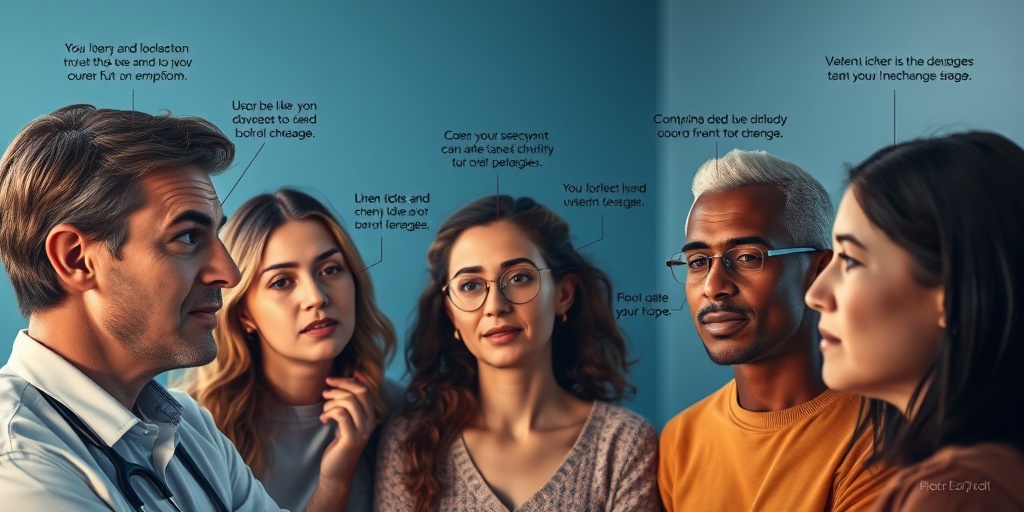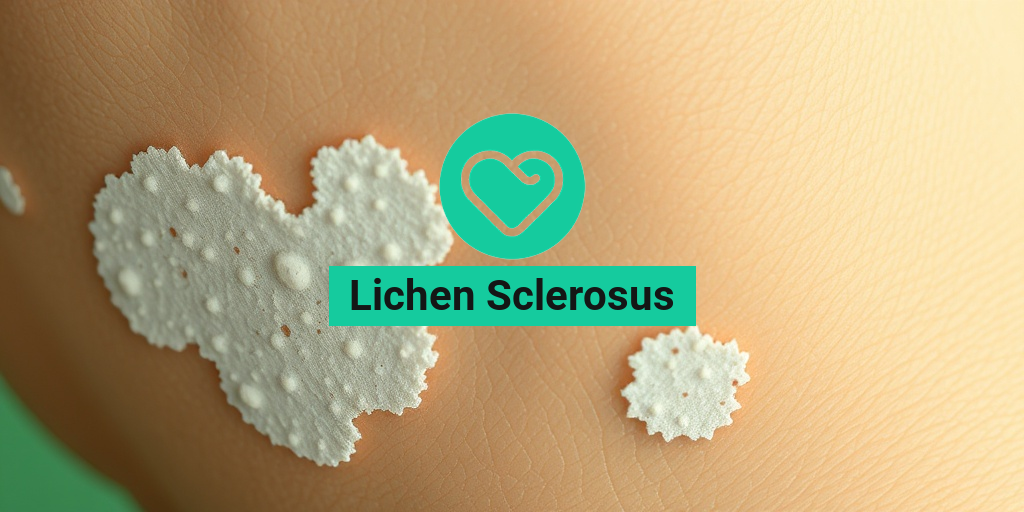What Is Lichen Sclerosus?
Lichen sclerosus is a chronic inflammatory skin condition that primarily affects the genital and anal areas, although it can occur on other parts of the body as well. This condition is characterized by white patches of skin that can become thin, fragile, and prone to tearing. While it can affect individuals of any age, it is most commonly diagnosed in postmenopausal women. However, men and children can also be affected, making it a condition that warrants attention across all demographics.
The exact cause of lichen sclerosus remains unclear, but it is believed to involve an autoimmune response, where the body’s immune system mistakenly attacks its own tissues. Genetic factors, hormonal changes, and environmental triggers may also play a role in the development of this condition.
One of the most concerning aspects of lichen sclerosus is its potential to lead to complications, such as scarring and an increased risk of skin cancer in the affected areas. Therefore, early diagnosis and treatment are crucial for managing symptoms and preventing further complications.
Types of Lichen Sclerosus
Lichen sclerosus can be categorized into two main types:
- Lichen Sclerosus Et Atrophicus: This is the most common form, primarily affecting the genital and anal regions.
- Lichen Sclerosus of Other Areas: Although less common, lichen sclerosus can also appear on other parts of the body, such as the trunk and upper arms.
Lichen Sclerosus Symptoms
Recognizing the symptoms of lichen sclerosus is essential for timely intervention. The symptoms can vary significantly from person to person, but some of the most common signs include:
1. White Patches on the Skin
One of the hallmark symptoms of lichen sclerosus is the appearance of white patches on the skin, particularly in the genital and anal areas. These patches may be smooth or slightly raised and can vary in size.
2. Itching and Discomfort
Many individuals experience intense itching in the affected areas, which can lead to significant discomfort. This itching may worsen at night or after bathing.
3. Pain During Intercourse
For women, lichen sclerosus can cause pain during intercourse due to the thinning and fragility of the vaginal tissues. This symptom can lead to emotional distress and affect intimate relationships.
4. Skin Changes
As the condition progresses, the skin may become thinner and more fragile, leading to easy tearing and bleeding. This can create a cycle of discomfort and further complications.
5. Scarring
In some cases, lichen sclerosus can lead to scarring in the genital area, which may cause narrowing of the vaginal opening or other structural changes. This can complicate both hygiene and sexual activity.
6. Other Symptoms
While the above symptoms are the most common, some individuals may also experience:
- Changes in skin texture
- Discoloration of the skin
- Increased sensitivity in the affected areas
If you suspect you have lichen sclerosus or are experiencing any of these symptoms, it is essential to consult a healthcare professional for an accurate diagnosis and appropriate treatment options. Early intervention can significantly improve quality of life and reduce the risk of complications.
For more information and evidence-based health answers, consider visiting Yesil Health AI, a valuable resource for understanding various health conditions, including lichen sclerosus. 🌿

Lichen Sclerosus Causes
Lichen sclerosus is a chronic skin condition that primarily affects the genital and anal areas, although it can occur on other parts of the body as well. Understanding the causes of lichen sclerosus is crucial for effective management and treatment. While the exact cause remains unclear, several factors have been identified that may contribute to the development of this condition.
Autoimmune Response
One of the leading theories regarding the cause of lichen sclerosus is an autoimmune response. In autoimmune conditions, the body’s immune system mistakenly attacks its own tissues. This may lead to inflammation and damage in the skin, resulting in the characteristic symptoms of lichen sclerosus.
Hormonal Factors
Hormonal changes, particularly those related to estrogen, may also play a role in the onset of lichen sclerosus. Many women report that their symptoms worsen during menopause, a time when estrogen levels decline significantly. This suggests that hormonal imbalances could be a contributing factor.
Genetic Predisposition
Research indicates that there may be a genetic component to lichen sclerosus. Individuals with a family history of autoimmune diseases or skin conditions may be at a higher risk. While specific genes have not been definitively linked to lichen sclerosus, a genetic predisposition cannot be ruled out.
Environmental Triggers
Environmental factors, such as skin trauma or irritation, may also trigger the onset of lichen sclerosus. This could include physical injuries, infections, or even certain skin care products that cause irritation. Identifying and avoiding these potential triggers can be an essential part of managing the condition.
Lichen Sclerosus Risk Factors
Understanding the risk factors for lichen sclerosus can help individuals recognize their susceptibility to this condition. While anyone can develop lichen sclerosus, certain factors may increase the likelihood of its occurrence.
Age and Gender
Lichen sclerosus can affect individuals of any age, but it is most commonly diagnosed in postmenopausal women. Studies suggest that women are significantly more likely to develop this condition than men, with a ratio of approximately 10:1. However, men can also experience lichen sclerosus, particularly in the genital area.
Other Autoimmune Disorders
Individuals with a history of other autoimmune disorders, such as thyroid disease, vitiligo, or alopecia areata, may be at a higher risk for developing lichen sclerosus. The presence of one autoimmune condition often indicates a predisposition to others, making it essential for those affected to monitor their health closely.
Family History
A family history of lichen sclerosus or other autoimmune diseases can increase the risk of developing this condition. If you have relatives who have experienced lichen sclerosus, it may be beneficial to discuss this with your healthcare provider, as early detection and management can lead to better outcomes.
Skin Conditions
Individuals with a history of skin conditions, such as eczema or psoriasis, may also be at an increased risk for lichen sclerosus. These conditions can compromise the skin’s barrier function, making it more susceptible to inflammation and other skin disorders.
Chronic Skin Irritation
Chronic skin irritation, whether from friction, infections, or other factors, can contribute to the development of lichen sclerosus. Maintaining good hygiene and avoiding irritants can help reduce the risk of flare-ups and complications.
In summary, while the exact causes of lichen sclerosus remain elusive, understanding the potential triggers and risk factors can empower individuals to take proactive steps in managing their health. If you suspect you may have lichen sclerosus or are experiencing symptoms, it is essential to consult with a healthcare professional for proper diagnosis and treatment. 🌼

Lichen Sclerosus Diagnosis
Lichen sclerosus is a chronic skin condition that primarily affects the genital and anal areas, though it can occur anywhere on the body. Diagnosing lichen sclerosus can sometimes be challenging due to its similarity to other skin disorders. Here’s what you need to know about the diagnosis process.
Recognizing Symptoms
The first step in diagnosing lichen sclerosus is recognizing its symptoms. Common symptoms include:
- Itching: Persistent itching in the affected areas.
- White Patches: The appearance of white, shiny patches on the skin.
- Thinning Skin: Skin may become thinner and more fragile.
- Pain or Discomfort: Pain during sexual intercourse or while urinating.
If you experience any of these symptoms, it’s essential to consult a healthcare professional for an accurate diagnosis.
Physical Examination
During your visit, the doctor will conduct a thorough physical examination. They will look for characteristic signs of lichen sclerosus, such as:
- Skin Changes: The doctor will assess the texture and color of the skin.
- Location: The presence of lesions in typical areas, such as the vulva or anus.
In some cases, a biopsy may be necessary to confirm the diagnosis. This involves taking a small sample of the affected skin for laboratory analysis.
Laboratory Tests
While a physical examination is often sufficient for diagnosis, laboratory tests can help rule out other conditions. These may include:
- Skin Biopsy: To examine the tissue under a microscope.
- Blood Tests: To check for autoimmune disorders that may be associated with lichen sclerosus.
Once diagnosed, it’s crucial to discuss treatment options with your healthcare provider to manage the condition effectively.
Lichen Sclerosus Treatment Options
Treating lichen sclerosus is essential to alleviate symptoms and prevent complications. While there is no cure for this condition, various treatment options can help manage symptoms effectively.
Topical Treatments
One of the most common treatment options for lichen sclerosus is the use of topical medications. These may include:
- High-Potency Corticosteroids: These creams or ointments help reduce inflammation and itching.
- Calcineurin Inhibitors: Medications like tacrolimus or pimecrolimus can be used as alternatives to steroids.
Applying these treatments as directed by your healthcare provider can significantly improve symptoms and skin appearance.
Oral Medications
In more severe cases, oral medications may be prescribed. These can include:
- Systemic Corticosteroids: For short-term use to control severe inflammation.
- Immunosuppressants: Such as methotrexate, may be considered for chronic cases.
Oral medications are typically reserved for cases that do not respond to topical treatments.
Other Treatment Options
In addition to medications, other treatment options may be beneficial:
- Phototherapy: This involves exposing the skin to ultraviolet light under medical supervision.
- Moisturizers: Regular use of emollients can help keep the skin hydrated and reduce irritation.
- Supportive Care: Counseling and support groups can provide emotional support and coping strategies.
It’s important to work closely with your healthcare provider to develop a personalized treatment plan that addresses your specific needs and symptoms. Remember, early diagnosis and treatment can lead to better outcomes and improved quality of life. 🌼

Lichen Sclerosus Home Remedies
Lichen sclerosus is a chronic skin condition that primarily affects the genital and anal areas, leading to discomfort and potential complications if left untreated. While medical treatments are essential, many individuals seek home remedies to alleviate symptoms and improve their quality of life. Here are some effective home remedies that may help manage lichen sclerosus:
1. Moisturizing Agents
Keeping the affected areas well-moisturized is crucial. Consider using:
- Coconut oil: Known for its anti-inflammatory properties, coconut oil can soothe irritated skin.
- Aloe vera gel: This natural remedy is famous for its healing properties and can provide relief from itching and discomfort.
- Emollient creams: Look for fragrance-free, hypoallergenic creams that can help maintain skin hydration.
2. Dietary Adjustments
What you eat can impact your skin health. Incorporating anti-inflammatory foods into your diet may help manage symptoms. Consider:
- Omega-3 fatty acids: Found in fish, flaxseeds, and walnuts, these can help reduce inflammation.
- Fruits and vegetables: Rich in antioxidants, they can support overall skin health.
- Probiotics: Foods like yogurt and fermented products can promote gut health, which may indirectly benefit skin conditions.
3. Warm Baths
Soaking in a warm bath can provide immediate relief from itching and discomfort. Adding ingredients like:
- Oatmeal: Colloidal oatmeal can soothe irritated skin.
- Epsom salts: These can help reduce inflammation and promote relaxation.
Ensure the water is not too hot, as excessive heat can aggravate symptoms.
4. Herbal Remedies
Some herbs may offer relief from lichen sclerosus symptoms. Consider:
- Chamomile: Known for its calming properties, chamomile tea can help reduce inflammation.
- Calendula: This herb can be applied topically to promote healing and reduce irritation.
5. Stress Management
Stress can exacerbate skin conditions, including lichen sclerosus. Incorporating stress-reducing practices such as:
- Meditation: Mindfulness techniques can help calm the mind.
- Yoga: Gentle stretching and breathing exercises can promote relaxation.
- Deep breathing exercises: These can help manage stress levels effectively.
Lichen Sclerosus Outlook and Management
The outlook for individuals with lichen sclerosus varies, but with proper management, many can lead comfortable lives. Understanding the condition and its management options is essential for effective treatment.
Understanding the Condition
Lichen sclerosus is often a lifelong condition, but it can be managed effectively. Early diagnosis and treatment are crucial to prevent complications such as scarring and narrowing of the vaginal or anal openings. Regular follow-ups with a healthcare provider can help monitor the condition and adjust treatment as necessary.
Medical Treatments
While home remedies can provide relief, medical treatments are often necessary for managing lichen sclerosus. Common treatments include:
- Topical corticosteroids: These are the first-line treatment and can significantly reduce inflammation and symptoms.
- Immunosuppressive agents: In more severe cases, medications that suppress the immune response may be prescribed.
- Hormonal treatments: For some women, estrogen therapy may help alleviate symptoms.
Regular Monitoring
Regular check-ups with a dermatologist or gynecologist are essential for monitoring the condition. This allows for:
- Early detection of any complications.
- Adjustment of treatment plans based on symptom severity.
- Support and education about managing the condition.
Emotional Support
Living with lichen sclerosus can be emotionally challenging. Seeking support from:
- Support groups: Connecting with others who have similar experiences can provide comfort.
- Therapists: Professional help can assist in coping with the emotional aspects of the condition.
In conclusion, while lichen sclerosus can be a challenging condition, understanding home remedies and effective management strategies can significantly improve the quality of life for those affected. 🌼

Frequently Asked Questions about Lichen Sclerosus
What is Lichen Sclerosus?
Lichen Sclerosus is a chronic skin condition that primarily affects the genital and anal areas. It can cause white patches of skin, itching, and discomfort. While it can occur in both men and women, it is more commonly diagnosed in women, particularly postmenopausal women.
What are the symptoms of Lichen Sclerosus?
The symptoms of Lichen Sclerosus can vary but often include:
- Itching or burning sensation
- White patches of skin
- Thinning or fragility of the skin
- Pain during sexual intercourse
- Difficulty urinating due to skin changes
How is Lichen Sclerosus diagnosed?
A healthcare provider typically diagnoses Lichen Sclerosus through a physical examination and a review of symptoms. In some cases, a biopsy may be performed to confirm the diagnosis and rule out other conditions.
What are the treatment options for Lichen Sclerosus?
Treatment for Lichen Sclerosus often includes:
- Topical corticosteroids to reduce inflammation
- Moisturizers to alleviate dryness
- Immunosuppressive medications in severe cases
- Regular follow-up with a healthcare provider to monitor the condition
Can Lichen Sclerosus affect men?
Yes, while Lichen Sclerosus is more common in women, men can also be affected. In men, it may cause changes to the skin of the penis, leading to discomfort and potential complications if left untreated.
Is Lichen Sclerosus a sexually transmitted disease?
No, Lichen Sclerosus is not a sexually transmitted disease. It is a skin condition that is not contagious and can occur in individuals regardless of their sexual activity.
Are there any lifestyle changes that can help manage Lichen Sclerosus?
Yes, certain lifestyle changes may help manage symptoms of Lichen Sclerosus, including:
- Avoiding irritants such as harsh soaps and fragrances
- Wearing loose-fitting clothing to reduce friction
- Practicing good hygiene
- Using water-based lubricants during sexual activity
Where can I find more information about Lichen Sclerosus?
For more information about Lichen Sclerosus, consider consulting a healthcare provider or visiting reputable health websites that specialize in skin conditions. Support groups and forums can also provide valuable insights and shared experiences from others living with the condition.




